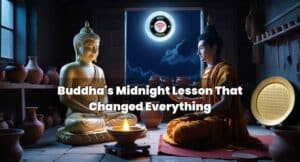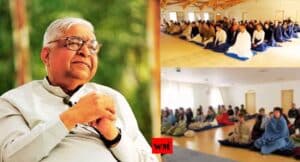{ vipassana meditation,vipassana meditation centre, vipassana centre, global vipassana pagoda, how many vipassana centers in india, mental purification, anapana,vipassana meditation centre near me }
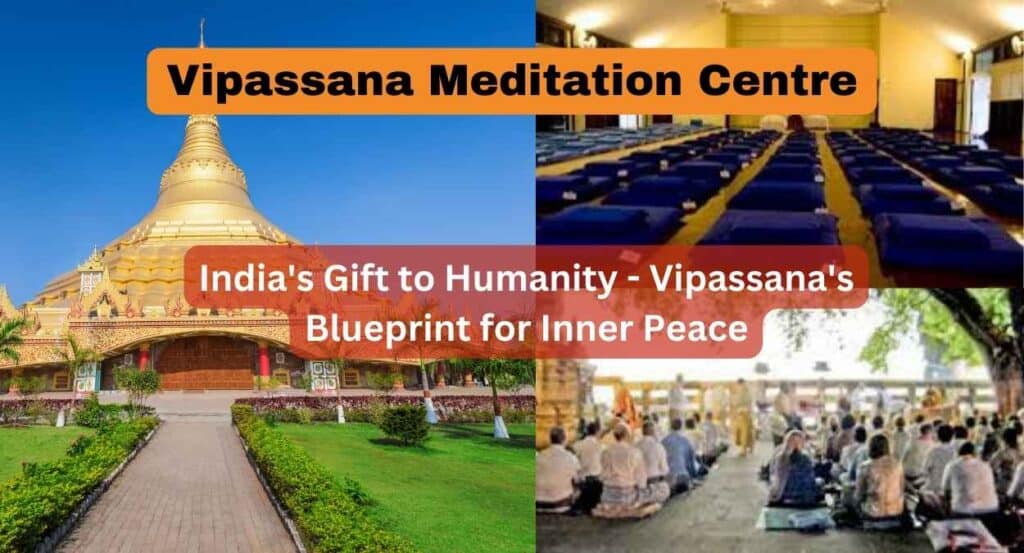
Vipassana Meditation Centre: A Path to Inner Peace and Happiness
We can learn Vipassana free of cost through a 10-day Vipassana course in various Vipassana Meditation Centres across the world. In this article, we are going to discuss the Vipassana Meditation and Vipassana Meditation Centre based on the entire world. Let’s start this article.
Vipassana meditation is an ancient Indian technique for purifying the mind and achieving lasting peace and happiness. Translating to “seeing things as they are,” Vipassana helps practitioners gain insight into the true nature of reality by observing bodily sensations with detached equanimity.
A Brief History of Vipassana
Vipassana was rediscovered over 2500 years ago by Gautama Buddha himself. After trying different forms of asceticism, he realized enlightenment through self-observation, which became known as Vipassana meditation. For his remaining 45 years, the Buddha travelled and taught this technique as a universal cure for human suffering.
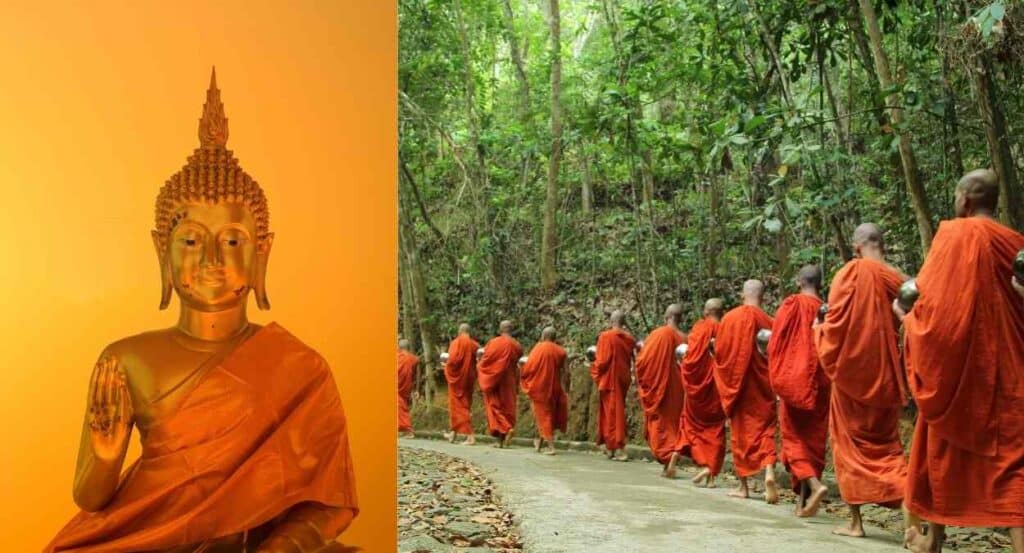
In the following centuries, Vipassana spread throughout ancient India and neighbouring countries like Myanmar, Thailand, and Sri Lanka. However, it disappeared from its homeland before being preserved in Myanmar by a long lineage of devoted teachers.
In the 20th century, renowned Burmese Vipassana teacher Sayagyi U Ba Khin taught Indian student S.N. Goenka, who later brought the practice back to India starting in 1969. Today it is flourishing worldwide thanks to teachers authorized by S.N. Goenka, with over 100 centers across America alone.
The beauty of Vipassana lies in its universal, non-sectarian nature focused purely on mind purification accessible to people of all backgrounds.
The Key Tenets and Practices of Vipassana
Vipassana walks the Noble Eightfold Path laid out by Buddha, which has three main pillars:
- Sila (moral conduct)
- Samadhi (strong concentration)
- Panna (insightful wisdom).
Moral Conduct Through the Five Precepts
Students first take five precepts – abstentions from killing, stealing, sexual misconduct, lying and intoxicants. By avoiding harmful actions, the agitated mind grows naturally calmer.

Developing Concentration via Anapana
For the first few days of a 10-day silent Vipassana retreat, practitioners focus intently on observing each inhalation and exhalation. This Anapana meditation grows mental mastery and concentration power.
Gaining Wisdom Through Vipassana
The final phase is Vipassana itself – gaining wisdom by observing all bodily sensations with perfect equanimity. Students penetrate their entire physical and mental structure to understand its transient, suffering-generating nature on an experiential level.
Through this choiceless observation of reality, as it is, students progress through the stages from taming the monkey mind to ending all mental conditioning and defilements.
The Courses and Code of Discipline
To learn Vipassana properly requires undertaking a 10-day silent meditation retreat. Students must observe noble silence, and refrain from reading, writing or communicating, apart from teacher meetings regarding meditation techniques.
Five hours are spent meditating daily, with breaks for meals and rest. Daily evening discourses explain the theory and the day’s learning. Students can donate to cover expenses but teachings are always free.
Progress depends solely on individual efforts – there is no competitive element and the teachers act as guides, not gurus.
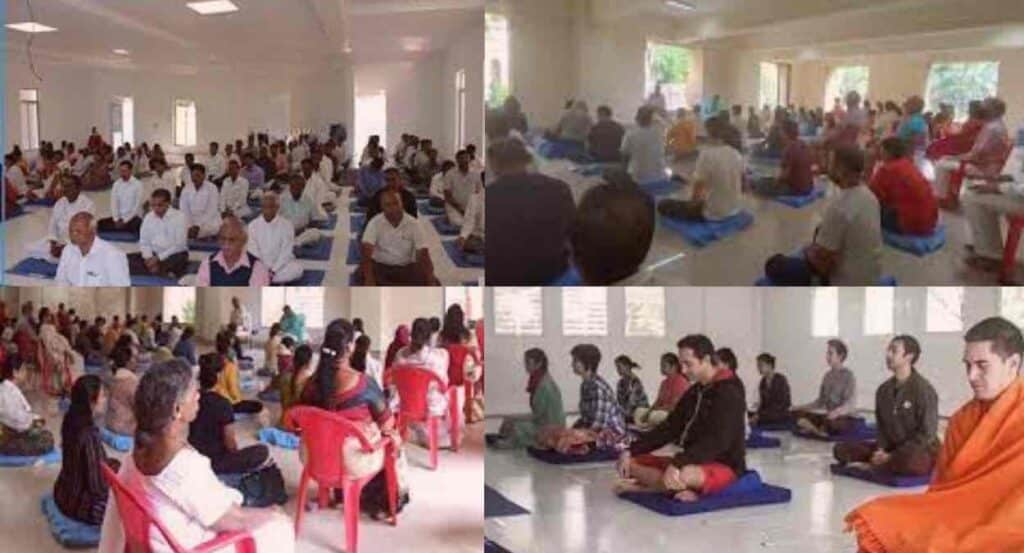
Vipassana Meditation Centres : The Ideal Environment for Learning Vipassana
Vipassana Meditation Centres are locations devoted solely to teaching the authentic technique preserved in the tradition of Sayagyi U Ba Khin and brought back to India by S.N. Goenka. They provide the ideal supportive environment for new students to properly learn the meditation method during mandatory 10-day silent retreats under the guidance of qualified assistant teachers.
Rules and Code of Conduct
Students must surrender devices, observe noble silence and abstain from intoxicants, killing, stealing or sexual misconduct via the Code of Discipline.
Optimized Schedule and Specialized Training
The entire ambience focuses students inwards through extended meditation, discourses and direct sensation observation via Anapana and Vipassana.
These Vipassana centres have simple yet comfortable facilities like individual accommodation rooms, group dining areas for meals, separate meditation halls for male and female students, teacher meeting rooms plus recorded video and audio discourse facilities. However, certain rules and discipline are necessary to maximize focus on inner work without distractions.
Students must surrender external communication devices and reading/writing materials. Noble silence is observed whereby students maintain quietude and do not interact, apart from queries for assistant teachers regarding technique. The Code of Discipline also encompasses abstinence from all intoxicants, sexual misconduct and killing any lifeforms. Maintaining five basic precepts allows the agitated mind to naturally settle and turn inward.
The entire environment and schedule are optimized to steer students swiftly into experiencing intensified operation of the mind and matter within themselves. During retreats, participants meditate for around 10 hours daily including breaks. Assistant teachers conduct live evening discourses to summarize learnings plus guide student practice for coming sessions. By directly working with sensations via Anapana and Vipassana, deep mental purification gets activated within students at Vipassana centres.
All expenses at these Vipassana meditation centres are covered through voluntary donations alone. Centres have no commercial elements and do not charge any fees. Neither teachers nor management receive compensation. Students make donations as an act of gratitude after personally experiencing the benefits of the technique. This allows even underprivileged individuals to learn Vipassana for uplifting their lives.

There are numerous authorized Vipassana meditation centres worldwide – over 100 in North America itself plus 82 centres in India spanning cities like Delhi, Mumbai, Hyderabad, Bangalore and more. The Global Vipassana Pagoda containing relics of S.N. Goenka is also a massive purpose-built centre created to spread awareness of Vipassana. Every student stepping into any of these facilities exits after ten transformational days equipped to make a deep positive impact on themselves and society through a strengthened meditative mind. Those interested in registering can find locations plus schedules on the Vipassana website.
The welcoming ambience plus the focused practice environment of Vipassana centres allows students to plunge fully into self-observation to maximally benefit by dissolving mental impurities. These facilities form global hubs established with the benevolent intention of enabling humanity to walk the timeless inner path laid down by Gautama Buddha over 25 centuries ago.
Global Spread of Vipassana Meditation
Thanks to the tireless efforts of S.N. Goenka and the assistant teachers he trained, Vipassana has spread worldwide since its Indian revival in 1969. Some key growth facts and stats:
- Over 100 Vipassana meditation centres in America and 82 Vipassana centres in India
- More than 5 million people have done Vipassana around the world
- Courses taught in English, Hindi and other local languages by assistant teachers
- Students from all religions, races and backgrounds attend 10-day retreats
- The towering Global Vipassana Pagoda was built in Mumbai, India in 2009 to spread awareness of Vipassana meditation. At 325 feet high, it is the world’s largest stone dome built without any supporting pillars.
This massive international outreach has planted Vipassana’s enlightening seeds in hundreds of thousands of minds worldwide. Students return home with enhanced peace, clarity and care towards others, creating a positive ripple effect in their communities.

Vipassana Results: Personal and Global Impact
On a personal level, Vipassana tames the stormy mind, opening the doorway to inner peace and harmony. With accumulated practice, students report a dramatic lessening of greed, anger, tension, worries and mental impurities. Love, compassion, sympathetic joy and equanimity naturally arise instead.
But Vipassana also holds huge potential for global change. A transforming individual mind positively influences families, communities and professional fields. Initial prison trials in India reduced recidivism rates through prisoners becoming calmer and more ethical. Civil servants gained greater public service focus and productivity.
As individuals awaken, so shall global society. Vipassana meditation represents a spark lighting humanity’s road back from suffering to our natural state of inner peace, truth and goodwill towards all.
Examples of Personal and Societal Transformation Through Vipassana Practice
Here are some inspirational examples of how Vipassana has deeply benefitted individuals from all walks of life as well as society as a whole:
Prisoners & Security Personnel
- Several Vipassana courses held in the largest Indian jails like Tihar helped reduce mental health issues and aggression among inmates
- Police Academy trainees also undertook Vipassana, leading to reduced corruption and heightened discipline
- Recidivism rates were cut by half in some cases showing prisoners adopted new positive lifestyles after release
Government & Civil Servants
- Improved efficiency, decision-making speed, policy formulation and staff harmony attributed directly to Vipassana practice
- Teachers report Government officials having success reducing or eliminating deeply embedded corruption patterns through self-observation exercises
Business Professionals
- Senior managers say Vipassana grows leadership qualities like strategic clarity, composure, empathy and insight
- Entrepreneurs have innovated new products and companies after getting inspiration while meditating
- Doctors, lawyers and celebrities alike are drawn towards Vipassana to manage stressful, turbulent careers
Individual Wellbeing
- Students of all age groups derive benefits like boosted happiness, relaxation, reduced anxiety and anger issues
- Disturbed sleep patterns normalized for insomniacs after a few weeks of daily practice
- Mental agility and sports performance improved by consciously working with sensations during training
Clearly, this 2000+-year-old meditation technique holds powerful transformative effects for all who undertake the inner journey.

Frequently Asked Questions About Vipassana
Q. What are the key benefits of Vipassana?
A. Vipassana promotes inner peace, self-awareness and wisdom about reality’s impermanent nature. With practice, it removes destructive mental patterns, enhancing happiness, equanimity and compassion.
Q. How does Vipassana differ from other types of meditation?
A. Vipassana directly confronts impermanence and suffering to uproot the ego-mind’s conditioning, rather than enter altered mindstates. Observation without reaction is the key.
Q. Can Vipassana help with stress and anxiety?
A. Yes – by understanding how all sensations arise and pass continuously, Vipassana meditation relieves embedded worries plus reactivity to daily ups and downs.
Q. What happens on a 10-day Vipassana retreat?
A. Students meditate for around 10 hours daily while observing noble silence. Teachers guide through the phases of Anapana breathing focus and subsequent Vipassana practice of observing bodily sensations to gain deep insights.
Q. How long until I see changes from Vipassana practice?
A. Within 10 days, students gain glimpses of the monkey mind. But 1-2 hours of practice daily for 2 months is needed to steady concentration abilities and start observing reality’s impermanent nature. Deeper transformation accumulates over the years.
Q. Can I practice Vipassana alone or do I need a teacher?
A. Teacher-led courses give essential proper training so new students don’t develop bad habits. But once established in the technique, you can self-practice. Maintain daily discipline for ongoing mind purification.
Q. Does Vipassana have any religious association?
A. No – the Buddha developed it as a scientific, universal mind training technique. Vipassana meditation teachers come from all backgrounds, serving students of all races and creeds without any conversion agenda.
Q. Where are the main global Vipassana centres located?
A. There are over 100 centers in America. India has major centres like Dhamma Pattana in Mumbai. S.N. Goenka’s headquarters is the Vipassana International Academy in Igatpuri, Maharashtra.
Vipassana Meditation Centre: Conclusions
Vipassana, impermanence, suffering, mental purification, five precepts, Anapana, Dhamma, morality, concentration, wisdom, equanimity, compassion
Vipassana Meditation Centre offers free learning about Vipassana meditation for human beings which is an effective method for gaining mastery over the troubled mind. Through meticulous observation of bodily sensations without reaction, we come face-to-face with the Three Marks of Existence – impermanence, suffering and the egoless nature of apparent reality. This understanding opens the doorway to mental purification and inner peace unshakable by external circumstances. On an individual and global scale, Vipassana represents a beacon lighting the way out of suffering towards the highest human qualities of truth, compassion, sympathetic joy and goodwill towards all.
Disclaimer:
This article is for informational purposes only. The information does not constitute medical advice. Please consult a doctor before making any lifestyle or dietary changes. Consult qualified teachers before undertaking Vipassana meditation.
Also Read:
Vipassana Pune: Discover Inner Peace Through Vipassana Meditation in Pune
Vipassana Meditation Centre Delhi – Nestled in Aravali Hills,Perfect for Vipassana Meditators
The Truth About the Global Vipassana Pagoda’s Mesmerizing Relics
Discover India’s Top 25 Vipassana Meditation centre For Life Transformation

